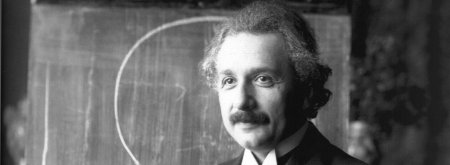God as Wish Fulfilment?
A central task of apologetics is to create a situation in which it is possible to come to faith. Part of this responsibility involves the neutralisation of a number of potential obstacles to faith. These difficulties are often freestanding, so that the resolution of a single issue can often clear the road to faith. The present chapter is concerned with exploring and countering some major difficulties that prevent many individuals taking Christianity seriously.
1. God as wish-fulfilment?
Is God really there? Or is our sense of his existence nothing more than a secret hope that our greatest longings might be fulfilled? Is God for real – or is he just an illusion, like a dream in the night? These questions have long been debated within western civilisation. In recent years, however, the idea that God is simply some kind of human wish-fulfilment has gained credibility, and is increasingly used in anti-Christian propaganda. The two writers who are especially associated with this development are Ludwig Feuerbach (1804-72) and Sigmund Freud (1856-1939). We shall consider their contributions, before evaluating their conclusions.
Feuerbach's chief work is The Essence of Christianity (1841),in which he argues that the idea of God arises understandably, but mistakenly, from human experience.[1] Religion in general is simply the projection of human nature onto an illusory transcendent plane.[2] Human beings mistakenly objectify their own feelings. They interpret their experience as an awareness of God, whereas it is in fact nothing other than an experience of themselves. God is the longing of the human soul personified.
We yearn for a being that will satisfy all our desires and dreams – and, by doing so, invent such a being. For Feuerbach, the doctrine of the resurrection of Christ is nothing more than an echo of the deep human longing for immediate certainty of personal immortality. Scripture tells us that God created human beings in his image; Feuerbach declares that we have made God in our image. `Man is the beginning, the centre and the end of religion.' God is a human wish fulfilled and sustained by an illusion. Christianity is a fantasy world inhabited by people who have failed to realize that when they think they are talking about God, they are simply disclosing their own innermost hopes and fears.
What are we to make of this approach, which is developed in so significant a direction in the writings of Karl Marx (see pp.201, 206)? A number of points need to be made. First, the context in which Feuerbach develops his ideas needs to be examined. Feuerbach was writing in the heyday of the great German liberal theologian Friedrich Schleiermacher (1736-1834). Schleiermacher's theological system rests upon an analysis of human experience, supremely the experience of being dependent.[3] Whatever the undoubted merits of this approach might be, it has the effect of making the reality of God dependent upon the religious experiences of the pious believer. Theology becomes anthropology, as an understanding of God becomes reduced to an understanding of human nature.
Feuerbach's analysis represents a brilliant critique of this approach, which continues to be influential in western liberal Christianity. The existence of God is held to be grounded in human experience. But, as Feuerbach emphasises, human experience might be nothing other than experience of ourselves, rather than of God. We might simply be projecting our own experiences, and calling the result ‘God’, where we ought to realize that they are simply experiences of our own very human natures. Feuerbach's approach represents a devastating critique of humanity-centred ideas of Christianity. But what of those more reliable versions of the gospel which insist that faith is a response, not to human experience, but to an encounter with the Word of God? Schleiermacher's approach may be faithful to the biblical insight that Christianity affects our experience. But it seems to have lost sight of an entire dimension of biblical Christianity: that God confronts us in saving judgment through his Word.
The recovery of an emphasis upon the Word of God outside us, rather than upon our internal religious experience, has been one of the more welcome developments in the twentieth century. For example, consider the writings of Karl Barth, perhaps the sternest critic of Schleiermacher in the western theological tradition.[4] For Barth, the reality of God is prior to and independent of human experience of that reality. Neither Christian faith nor theology is a response solely to some subjective human experience. They arise from an encounter with God through Christ, mediated through Scripture. Feuerbach, interestingly, has not the slightest interest in the identity or history of Jesus Christ. For him, the character portrayed in the New Testament is simply a fantasy figure who endorses human hopes and aspirations. But traditional Christian theology portrays Christ as challenging our hopes and aspirations, bringing home the reality of sin (an idea which Feuerbach conveniently overlooks) before the joy of redemption can be fully appreciated.
Second, Feuerbach generalizes hopelessly about religions. He assumes (without any cogent argument or careful scholarship) that all the world religions have the same basic core components, which can all be explained on the basis of his atheistic projection theory. All gods, and hence all religions, are simply projections of human desires. But what of the non-theistic religions – those world religions, such as Theravada Buddhism, which explicitly deny the existence of a god?
Third, Feuerbach's hypothesis is nothing more than a hypothesis. It does not rest upon a rigorous experimental foundation, but represents a series of dogmatic assertions about how we come to believe in God. His theory has not been proven, and cannot be stated in a form which can either be verified or falsified. For example, he argues that the wish is father to the thought. In that human beings wish for God, their longing is satisfied by their invention of that God by a process of projection. But do all human beings long for the existence of God? Take, for example, an extermination camp commandant during the Second World War. Would there not be excellent reasons for supposing that he might hope that God does not exist, given what might await him on the day of judgment? And might not his atheism itself be a wish-fulfilment? On the basis of Feuerbach's analysis, it is not simply Christianity, but atheism itself, which can be regarded as a projection of human hopes.
But perhaps the most serious objection relates to the logic of Feuerbach's analysis. At the heart of Feuerbach's atheism is his belief that God is only a projected longing. Now it is certainly true that things do not exist because we desire them. But it does not follow from this that, because we desire something, it does not exist. Yet this is the logical structure of Feuerbach's analysis. Eduard von Hartmann pointed this out nearly a century ago, when he wrote: ‘it is perfectly true that nothing exists merely because we wish it, but it is not true that something cannot exist if we wish it. Feuerbach's entire critique of religion and the proof of his atheism, however, rest upon this single argument – a logical fallacy.’ [5]
Furthermore, the Christian doctrine of creation, studiously ignored by Feuerbach, has an important contribution to make here. If we are indeed created in the image and likeness of God (Genesis 1:26-27), is it entirely surprising that we should wish to relate to him? Might not a human desire for God be grounded in the fact that he brought us into being with an inbuilt capacity to relate to him? [6]
Feuerbach's basic ideas found new life, however, in the writings of the psychoanalyst Sigmund Freud.[7] In fact, it is probably fair to say that the `projection' or 'wish-fulfilment' theory is best known today in its Freudian variant, rather than in Feuerbach's original version. The most powerful statement of Freud's approach may be found in The Future of an Illusion (1927), which develops a strongly reductionist approach to religion.[8] For Freud, religious ideas are `illusions, fulfilments of the oldest, strongest and most urgent wishes of mankind.’[9]
To understand Freud at this point, we need to examine his theory of repression. These views were first made known generally in The Interpretation of Dreams (1900), a book which was initially largely ignored by the critics and the general reading public. Freud's thesis here is that dreams are disguised fulfilments of wishes that are repressed by the consciousness (the ego), and are thus displaced into the unconsciousness. In The Psycho pathology of Everyday Life (1904), Freud argued that these repressed wishes intrude into everyday life at a number of points. Certain neurotic symptoms, dreams, or even small slips of the tongue or pen – so-called `Freudian slips' – reveal unconscious processes.
The task of the psychotherapist is to expose the repressions which have such a negative effect on life. Psychoanalysis (a term coined by Freud) aims to lay bare the unconscious and untreated traumatic experiences, by assisting the patient to raise them up into consciousness. Through persistent questioning, the analyst can identify repressed traumas which are having a negative effect upon the patient, and enable the patient to deal with them by bringing them into the open.
By the time Freud had finished, however, psychoanalysis was no longer primarily a form of therapy, designed to liberate people from the hidden tyranny of repressed traumas. In the spirit of the Enlightenment, it had virtually become a global hypothesis, capable of explaining just about anything.[10] A substantial doctrinal system evolved, centring on such issues as the Oedipal complex, the theory of instincts, and narcissism. It was hardly suprising when Freud declared that religion could also be explained on the basis of this new system.[11]
The first major statement of Freud's views on the origin of religion – which he increasingly came to refer to as `the psychogenesis of religion' – may be found in Totem and Taboo (1913). Developing his earlier observation that religious rites are similar to the obsessive actions of his neurotic patients, Freud declared that religion was basically a distorted form of an obsessional neurosis.
Freud's views on the origin of religion need to be considered in two stages: first, its origins in the development of human history in general, and second, its origins in the case of the individual person. We may begin by dealing with his account of the psychogenesis of religion in the human species in general, as it is presented in Totem and Taboo.
Freud believes that the key elements in all religions are the veneration of a father figure (such as God or Jesus Christ), faith in the power of spirits, and a concern for proper rituals. Freud traces the origins of religion to the Oedipal complex. At some point in the history of the human race, Freud argues, the father figure had exclusive sexual rights over females in his tribe. The sons, unhappy at this state of affairs, overthrow the father figure, and kill him. Thereafter, they are haunted by this secret and its guilt. Religion has its origins in this prehistorical event, has guilt as its major motivating force, and attempts to expiate this guilt through various rituals. This explanation will strike most readers as unconvincing. Perhaps for this reason, most atheistic appeals to Freud concentrate upon his account of the origins of religion in the individual, to which we now turn.
In an essay on a childhood memory of Leonardo da Vinci (1910), Freud sets out his explanation of individual religion.
Psychoanalysis has made us familiar with the intimate connection between the father-complex and belief in God; it has shown us that a personal God is, psychologically, nothing other than an exalted father, and it brings us evidence every day of how young people lose their religious beliefs as soon as their father's authority breaks down. Thus we recognize that the roots of the need for religion are in the parental complex. [12]
The veneration of the father figure has its origins in childhood. When going through its Oedipal phase, Freud argues, the child has to deal with anxiety over the possibility of being punished by the father. The child's response to this threat is to venerate the father, identify with him, and to project what it knows of the father's will in the form of the superego.
Freud explored the origins of this projection of an ideal father figure in The Future of an Illusion. Religion represents the perpetuation of a piece of infantile behaviour in adult life. Religion is simply an immature response to the awareness of helplessness, by going back to one's childhood experiences of paternal care: `My father will protect me; he is in control.' Belief in a personal God is thus little more than an infantile delusion. Religion is wishful thinking.
How are we to respond to this approach to religion? We may begin by noting that Freud has unquestionably been influenced here by a series of writings, such as W. Robertson Smith's Lectures on the Religion of the Semites (1898), which argued that the essence of religion was not so much a set of beliefs or doctrines, but sacred actions, rites or cults. It must be remembered that Freud was writing at a time when the ethnographical explanation of religion was taken very seriously, and seemed to possess impeccable scientific credentials. That situation, however, has radically changed since then, with such simplistic and reductionist theories being generally abandoned as unworkable. But in Freud's day, they seemed to point the way ahead. In effect, Freud has aligned himself with a scholarly theory which, though significant in its own time, is no longer taken with any great seriousness.
Second, Freud's theory of the psychogenesis of religion predates his study of religions; it does not arise out of that study. He had, in effect, already decided on his theory before beginning to engage with the literature relating to the field. Ernest Jones, one of Freud's most distinguished and perceptive biographers, draws attention to a letter in which Freud grumbles about having to read his way through a great many tedious tomes relating to religion. It is rather pointless, he comments, as he already instinctively knows the answer to his question about the origin of religion. `I am reading books without being really interested in them, since I already know the results; my instinct tells me that.’[13] Freud's atheistic view of the origin of religion comes prior to his study of religion; it is not its consequence.
Third, Freud's theory concerning the origins of religion in the individual is, like that of Feuerbach, generally incapable of being tested. It is a hypothesis, not a fact. Freud could be said to lend psychoanalytical support to Feuerbach, but not to provide the crucial experimental data which would convert a hypothesis into a fact. On the relatively few points at which Freud's hypothesis is capable of being tested experimentally, it is generally accepted that it is wrong. For example, overlap between people's notions of `God' and `father' seem to occur only where the father is the preferred parent, with most people tending to model God on their mother.[14] Like Feuerbach's projection theory, Freud's psychoanalytical atheism must now be regarded as a hypothesis that has not been, and indeed cannot be, proved. The apologist has excellent reasons for challenging naive appeals to the Freudian explanation of faith, which rests upon distinctly shaky foundations.
So be confident at this point. Press home those hard questions. Where do Freud's ideas come from – hard experimental evidence, or his own atheist prejudices? Where is the historical evidence that Christianity owes its origins to a father complex, and can we accept anyway such a deeply sexist approach to religion? And why should Christians be expected to abandon their faith on account of Feuerbach's projection theory, a hypothesis which, in the end, rests on a logical error.
Notes
[1] See Max W. Wartofsky Feuerbach (Cambridge: Cambridge University Press, 1982), pp.252-340.
[2] I use the English word 'projection' to translate the German term Vergegenstandigung. An alternative translation might be 'objectification'. See Wartofsky, Feuerbach, pp.206-210.
[3] For a helpful introduction, see Martin Redeker Schleiermacher: Life and Thought (Philadelphia: Fortress Press, 1973).
[4] See J. Glasse, 'Barth on Feuerbach', Harvard Theological Review 57 (1964), pp.69-96.
[5] Eduard von Hartman Geschichte der Logik (2 vols: Leipzig, 1900), Vol.2, p.444.
[6] We have already explored the theological foundations and consequences of this notion of a 'point of contact' (pp.17-50; 51-75), and examined it further in relation to the Christian resolution of the Euthypro dilemma in ethics (pp.65-68)
[7] For a biography, see Ernest Jones Sigmund Freud: Life and Work 3 vols (London: Hogarth Press, 1953-7).
[8] See Fraser Watts and Mark Williams The Psychology of Religious Knowing (Cambridge: Cambridge University Press, 1988), pp.24-37.
[9] Sigmund Freud The Future of an Illusion, in Complete Psychological Works 24 vols (London: Hogarth Press, 1953-), Vol.21, p.30.
[10] See Paul Ricoeur Freud and Philosophy: An Essay on Interpretation (New Haven: Yale University Press, 1970).
[11] For what follows, see A.-M. Rizzuto The Birth of the Living God: A Psychoanalytical Study (Chicago: University of Chicago Press, 1979); W.W. Meissner Psychoanalysis and Religious Experience (New Haven: Yale University Press, 1984).
[12] Sigmund Freud, 'Leonardo da Vinci and a Memory of his Childhood', in Complete Psychological Works Vol.11, p.123.
[13] Jones Sigmund Freud, Vol.2, p.123.
[14] See B. Spilka, R.W. Hood and R.L. Gorsuch The Psychology of Religion: An Empirical Approach (Englewood Cliffs, NJ: Prentice-Hall, 1985).



